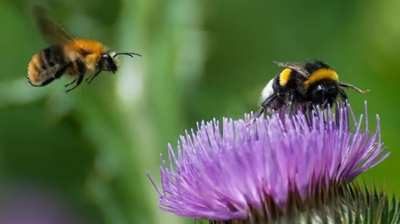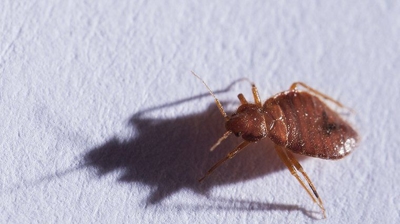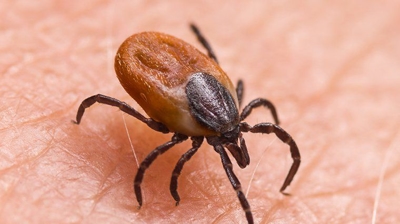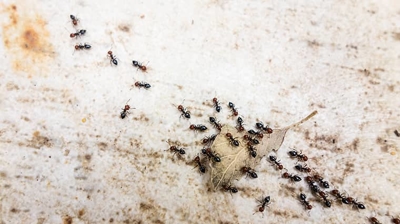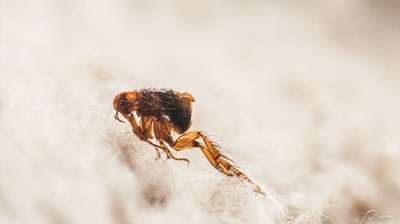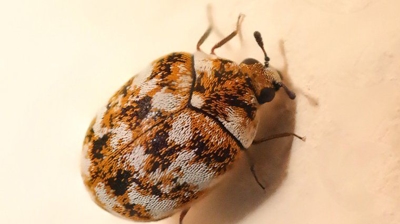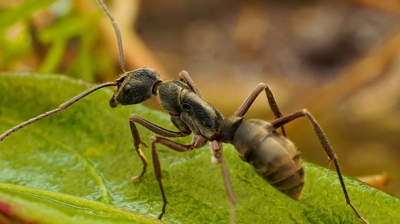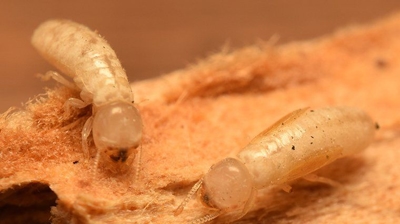
The Trick To Keeping Spiders Out Of Your Lawrenceville Home
Spiders are creepy, and the last thing you probably want to do is get into the mind of a spider. But that's what you need to do if you want to keep spiders out of your home. Natural spider prevention considers spider behavior, breeding practices, and web creation and uses this information to control where spiders want to be in order to keep them outside. Do you want to keep spiders in your house? If your answer is no, then you will love this article. Let's look at some interesting spider characteristics that pertain to behavior and discuss how you can turn that knowledge into long-lasting spider prevention.
Before we get started, keep in mind that you don't have to read a long article about spider prevention to get spiders out of your home and keep them out. You can jump to our contact page for spider pest control in Lawrenceville, and we'll send a licensed technician to assist you immediately. ProCare Pest Services offers industry-leading pest control in Lawrenceville.
Characteristics Of Common Spiders
.2404180821596.jpg)
You likely know the general characteristics of spiders. They have eight legs, fangs, and venom. All spiders are predators that use their fangs and venom to subdue prey, and most spiders create webs to capture prey. But there are many characteristics you may not know.
- In nature, spiders get under the bark of trees. When a spider scales your home, it can mistake your siding for bark. If you have wood rot underneath your siding, a spider may find a pathway into your home.
- In nature, spiders hide in the cracks of rocks. A spider will get inside your home when it finds a gap in your foundation wall. It is only doing what comes naturally.
- In nature, spiders hide in holes. When a spider sees an opening in your home, it will climb inside. It finds holes in rotted wood particularly attractive.
- While spiders may prefer holes, they may not prefer living inside. We call these outdoor spiders. They may get in, but they won't stay long.
- Common house spiders quickly adapt to indoor living because they have lower food and moisture requirements, but they tend to be found in damp areas, such as basements and crawl spaces, because they find their food in these areas. They eat invertebrates, and most invertebrates are attracted to damp or humid habits.
- Most spiders are attracted to dark spaces but will establish webs near light fixtures. They do this to capture insects, which are attracted to light. Spiders also build webs in the voids between window panes and screens because insects go toward windows to get to the light. Insects do this at night to get inside and during the day to get outside.
- Spiders love landscaping, wood piles, puddles, leaves, and other natural habitats because they are food-rich environments.
- Spiders prefer to create webs on dirty or dusty surfaces and in secluded areas. They also have a preference for dark voids.
Hopefully, you're starting to see a picture form. Spiders get into cracks, gaps, and holes and go where hunting is good. You can alter conditions to make your home less attractive to spiders.
In a moment, we'll tell you how you can use this information to reduce spider populations and keep them out of your home. Before we do, let's discuss why keeping Lawrenceville spiders out is a good idea.
Some Spiders Are More Dangerous Than Others

Why Choose ProCare Pest Services?
-
Locally Owned & Operated
-
Timely Services Available
-
Free Inspections for Your Home or Business
-
Modern & Effective Pest Control Methods
Six Easy And Effective Spider-Prevention Tips
Let's use what we've discussed so far. Common spiders in Lawrenceville can be managed and excluded naturally. You need to know how they think.
1. Since spiders are attracted to holes, cracks, and gaps, it only makes sense that you can keep them out of your home by sealing these entry points.
- Use a caulking gun or a can of expanding foam to seal wood holes, gaps between wood members, gaps around pipes, and other entry points.
- Replace weatherstripping and door sweeps that aren't getting the job done.
- Repair or replace the screens on your exterior doors and windows.
- Make sure your vents have covers.
- Protect your weep holes if your home has them.
2. Since spiders are predators that hunt for food, you can deter them by deterring invertebrates.
- Manage your trash. Insects can smell rotting organic matter from a distance. Keep exterior receptacles as clean as possible. Get a kitchen trash receptacle that seals when closed. Make sure to get your trash to the curb each week.
- Clean. Insects are attracted to food debris and unsanitary conditions. When you deep clean, you make insects less likely to get into your home, and this works to deter spiders.
- Protect food sources. Some insects eat the food you eat. Put food in sealed containers to keep insects away. As you protect food sources, keep in mind that insects will eat food from dirty dishes, your pet's food dish, and other places you might not consider.
- Insects are attracted to white light. Replace exterior white lights with lights that cast yellow light. Insects cannot see a yellow light and are not attracted to it.
- Many insects feed on the honeydew produced by aphids, whiteflies, and scale insects. Quickly address these pests in your landscaping to reduce the pests that eat them and the spiders that eat those pests.
-
"Tech and he’s pretty awesome"
I have been using Pro care for about a year or more now and I have no complaints. They have a really good staff.
Kisha L. -
"ProCare Pest Services is simply the BEST"
They were recommended by a neighbor and have exceeded my expectations.
Sara R. -
"We love ProCare"
We love ProCare! Have been with them for almost 6 years now and have never had a negative experience.
Shawn K. -
"John was very responsive and willing to answer any questions we had"
First meeting with Procare and staff.
Marty C.
3. By addressing moisture and humidity in and around your home, you can drive spiders out of your home.
- Fix any leaking faucets or shower heads in your home. That constant dripping provides a water source for spiders and their prey.
- Fix weeping pipes and garbage disposals.
- Use the bathroom fan when you shower or enjoy a bath in your tub. It will vent the moisture.
- Install dehumidifiers in damp or humid spaces.
- Clean your gutters to reduce perimeter moisture.
- Address damp areas of your landscaping.
- Trim tree canopy where there is dense shade near your home.
- Fix plumbing issues.
4. Since spiders make webs in secluded spaces, you know where to go to remove hidden them.
When you remove spider webs, you may remove spider egg sacs. A spider egg sac can have 300 eggs in it. That's a lot of spiders. Remove webs in obvious locations, but also in the dark places where spiders hide.
5. Since spiders hide under stacked wood, dead branches, and leaves, you know to remove these hiding places.
- When you pick up dead branches, store them in a plastic bin rather than on the ground.
- Blow leaves out of your landscaping and remove them from your yard before dense leaf litter or piles form.
- Store stacked wood away from your exterior, and consider putting wood on elevated platforms.
- Also, remove manufactured items, such as tires, cinder blocks, toys, machinery, etc.
6. Since you know that spiders have the potential to bite you and that some are dangerous, you know that effective spider control is essential.
The best solution for spider control is professional service. Licensed professionals use field-tested strategies and trusted control products to reduce spider food and prevent spiders from entering.
Quality Pest Control Makes The Best Spider Control
Are you in Lawrenceville? If so, you're in our service area. Contact ProCare Pest Services to establish a pest control service plan for your home. We take on the hard work of controlling spiders, and all of the pests spiders eat. Our technicians remove spider webs around your home, help with exclusion work, and apply layers of pest protection. All year long, your home will have what it needs to deter spiders and reduce that long list of invertebrates that spiders eat.
Do you have questions, or would you like to schedule your first service visit? We're standing by to assist you. While spiders are generally not considered a threat, they have the potential to be harmful. But the real reason to get control of spiders and general pests is that life is so much better when you don't have to deal with bugs in your home. If you agree, drop us a line.
Complete the form below to request your quote.

Stay In The Know
-
 Carpenter Bee Survival Guide: Identification, Control, And PreventionRead More
Carpenter Bee Survival Guide: Identification, Control, And PreventionRead More -
 Identifying A Bed Bug Infestation In LawrencevilleRead More
Identifying A Bed Bug Infestation In LawrencevilleRead More -
 Key Practices To Prevent Ticks On Your Lawrenceville PropertyRead More
Key Practices To Prevent Ticks On Your Lawrenceville PropertyRead More -
 A Helpful Pavement Ant Prevention Guide For Lawrenceville HomesRead More
A Helpful Pavement Ant Prevention Guide For Lawrenceville HomesRead More -
 Breaking the Flea Life Cycle In LawrencevilleRead More
Breaking the Flea Life Cycle In LawrencevilleRead More -
 Defeating Carpet Beetles And Reclaiming Your Lawrenceville HomeRead More
Defeating Carpet Beetles And Reclaiming Your Lawrenceville HomeRead More -
 Lawrenceville's Guide To Complete Ant RemovalRead More
Lawrenceville's Guide To Complete Ant RemovalRead More -
 Innovative Termite Control: Modern Solutions for Modern HomesRead More
Innovative Termite Control: Modern Solutions for Modern HomesRead More
